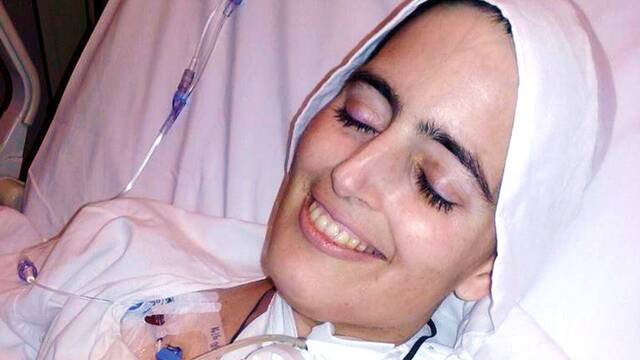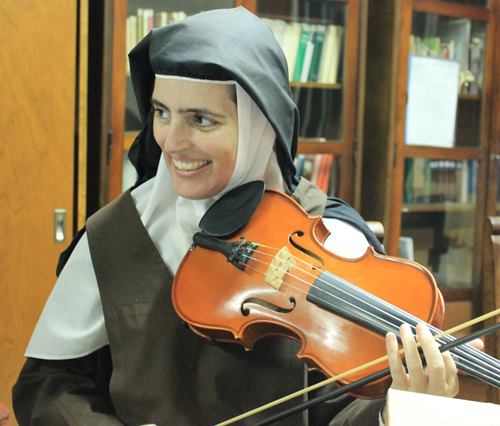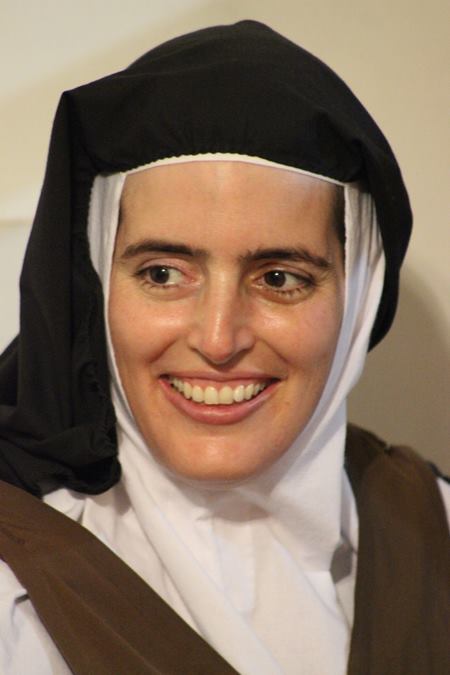(ZENIT News / Santa Fe, 07.03.2024).- Archbishop Alfredo Fenoy of Santa Fe, Argentina, initiated the process of Beatification of Carmelite Sister Cecilia Maria of the Holy Face, who died in 2016 and lived Christian joy in an exemplary way.
The Archbishop’s edict, dated February 14, 2024, highlights “the witness of love and trust in Jesus Christ,” of Cecilia Maria Sanchez Sorondo, born in the province of Neuquén, Argentina, in 1973. Sister Cecilia, “even amid the harshest trials, awakened in many hearts the desire of a greater commitment to the Christian life,” and gave her witness of faith with a smile that became viral after her death, on June 22, 2016.

The document states that, “with the passing of the years, her fame for holiness and signs” grew, which prompted her Postulator, Carmelite Marco Chiesa, to open the process based on her Christian example, amid the pain from tongue cancer that quickly metastasized, spreading to her lungs. Her treatment in Buenos Aires spread her reputation for holiness, divulged by members of her family and Sisters of the Santa Fe convent.
The second of ten siblings, a nurse and violin virtuosa, she entered the Convent of Saint Teresa and Saint Joseph in 1996, made her first vows in 1997 and her perpetual profession in 2003. She was 43 when she died. In January 2016 they inserted a gastronomy button in her, as she could no longer eat or drink. She returned to Santa Fe on March 19, but soon required new treatment in the Argentine capital. She returned to her Convent to spend her last days in her Community.
Expressing her last wish, she said: “I was thinking how I would like my funeral to be. First, quite strong in prayer, and then a great celebration for all. Don’t forget to pray, but also to celebrate!”

Testimonies recall her joyful and extroverted character. In 2016, photos of a smiling nun with catheters on her face, on a hospital bed and a clean smile went viral on the social networks as her death approached.
The Discalced Carmelites of her Convent said after her death, that she lived her painful illness “always with joy and surrender to her Divine Spouse,” adding that “we believe she flew directly to Heaven.” “We also ask you not to cease to intercede for her in your prayers, for which she will repay you from Heaven.”
Archbishop Fenoy requested that all “favourable or contrary elements” to the nun’s “reputation for holiness be sent to her Cause of Beatification, whether they are documents or verbal testimonies.

Aleteia received more direct information from the Santa Fe Convent, which underscored her constant joy during her illness, sustained by the support of numerous family members, who visited in her last days. Joyful nephews and nieces, gathered in the Hospital’s garden where she had been admitted, sent her messages and balloons to distract and entertain her.
The Convent’s Prioress, Mother Maria Magdalena de Jesus, said a year after her death: “She loved us a lot and had a special gift to reach hearts. The love she had for us was always demanding and faithful. She was concerned about all our needs and was very attentive to the problems of our families.” During her illness, “as throughout her life , she struggled to identify what God was asking of her.”
Thank you for reading our content. If you would like to receive ZENIT’s daily e-mail news, you can subscribe for free through this link.



